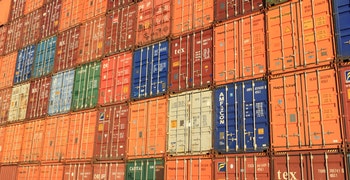
Will's Whiteboard: Drop Shipping Sales Tax - Who Collects?
Many companies use drop shippers, third parties who accept orders from a vendor, bill the vendor for the item, and then ship the item directly to the vendor’s retail customer. The vendor collects money from the customer and pays the drop shipper for their time and the item they shipped, usually at a wholesale price.
But who is on the hook to collect and remit sales tax in a drop shipping arrangement?
It turns out that this is not an easy question to answer. In this episode of Will's Whiteboard, Will offers a method to help you determine who's on the hook for sales tax in a transaction that involves drop shipping.
Like what you see? Click the button above to subscribe to Avalara's YouTube channel.
Video transcription
Hi, welcome to Will's White Board. I am Will. Sales tax requirements can be complicated for any type of business, but they can be especially complicated for businesses that use certain business models, and this is definitely true of drop shipping. Today we're going to be talking about sales tax requirements for those involved in drop shipping and we're going to give you some tools to begin to untangle that complexity.
For those of you who don't know, drop shipping is essentially a retail fulfillment method where a retailer doesn't keep items in stock, but orders them from a third-party and has them shipped directly to the customer. I'll show you what I mean. Okay, so in this scenario we have a customer who wants to purchase, say some headphones, and they go ahead and do that from an online store. Let's just say the customer is located in California. The store doesn't carry the headphones in their inventory. Instead, they order them from a wholesaler and in this scenario the wholesalers ships them directly to the customer. The retailer actually never sees or handles the merchandise.
There are other drop shipping scenarios, but we're going to keep it to this scenario today to simplify. The question here is when tax is due, which is on a lot of transactions, who pays the tax to the appropriate taxing jurisdictions in California? The retailer, the drop shipper, the wholesaler, or the customer? We'll give you some questions to begin to answer that.
All right, the first question to answer is, does the retailer, in this case, the online retailer, have Nexus in the jurisdiction where the customer is located? In this case, California. If you don't know what Nexus is, it's basically the connection between an entity and a taxing jurisdiction that means that the entity has to collect and remit sales tax. If you want to learn more you can watch our Whiteboard video, Three Surprising Sales Tax Triggers. So if you figure out that the retailer does indeed have Nexus where the customer is and you answer yes to this question, then it's up to the retailer to pay the tax to the appropriate taxing jurisdiction. But if you answer no, the retailer does not have Nexus.
Then you come up against a second question and that is, does the drop shipper have Nexus? In this case, the drop shipper is the wholesaler. And if they have Nexus, if the answer is yes and they have Nexus where the customer is located, this case California, then in some cases, in some states, they will have to collect and remit sales tax to varying degrees. And these are states like California or Connecticut, or Hawaii, and others. If the answer is no Nexus for the retailer, no Nexus for the drop shipper, then we end up with consumer use tax because it's actually up to the consumer to pay the tax that is owed to the jurisdiction.
As you can see, this is a complicated sales tax scenario. It's like it's complicated as trying to do brain surgery with chopsticks, there's lots of moving parts and you don't always have the right tools to do the job. There's another interesting wrinkle that makes it even more complex. In some states the very fact that the retailer used a drop shipper to deliver the goods to the consumer gives the retailer Nexus. These are states like California, New York, Texas, and Florida. So again, that makes the answer yes, the retailer has Nexus which means the retailer has to collect and remit sales tax to the appropriate jurisdiction. I hope these questions in this flow chart begin to show you how you can figure out your sales tax requirements if you're involved in drop shipping. Thanks very much and I'll see you next time.













